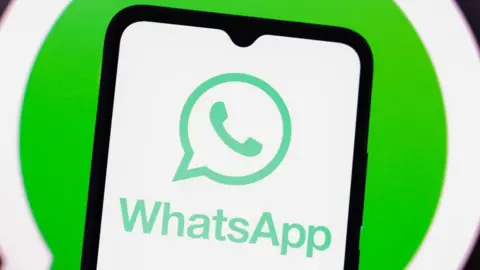WhatsApp, the widely-used messaging platform, recently encountered a brief technical outage that affected thousands of its users, primarily in the afternoon on a Friday. The hiccup was significant enough to garner attention from Downdetector, a website that tracks service disruptions, which recorded over 50,000 reports from users within a short timeframe starting just after 3:30 PM GMT. These reports began to taper off as the situation improved, indicating that WhatsApp was actively working to resolve the issues users were experiencing.
A spokesperson for WhatsApp confirmed that the messaging difficulties that many users faced, especially concerning the ability to send messages, had been identified and rectified. “We know some people briefly had trouble sending messages on WhatsApp,” the representative stated to BBC News, adding, “We’ve fixed the issue.” This reassurance came as a relief to users who rely heavily on the app for their daily communications, both personal and professional.
Interestingly, while WhatsApp was the primary service reporting outages, a smaller number of users also mentioned experiencing problems with Facebook and Facebook Messenger around the same time. However, these issues were not nearly as pervasive as those reported for WhatsApp. The platform, which boasts an astounding user base of nearly three billion people worldwide, is a vital tool for many. Since its acquisition by Meta in 2014, WhatsApp has maintained its status as one of the leading messaging applications globally.
Despite the recent technical troubles, the scale of WhatsApp’s user base means that even minor disruptions can affect millions of users simultaneously. In terms of recent history, this outage appears minor compared to the substantial outage in October 2021, where Meta’s applications—including WhatsApp—experienced a downtime of nearly six hours. Such mass global outages tend to raise issues of reliability and trust among users, particularly as Meta’s CEO, Mark Zuckerberg, has expressed ambitions for the company to dominate the messaging space, especially in the U.S.
During a recent investor update, Zuckerberg highlighted the tremendous growth WhatsApp has seen, noting that the platform facilitated over two billion calls every day. His comments emphasized the ongoing efforts of the company to enhance user experience and solidify its position in the competitive messaging market. However, delivering on this promise is crucial, especially in light of how deeply entrenched WhatsApp has become in everyday communications across various demographics.
Moreover, Meta faced scrutiny not only for this specific outage but also for its overall performance regarding service reliability. Users and critics alike are increasingly questioning the ability of big tech firms to manage their vast infrastructures effectively. As WhatsApp continues to evolve with new features and services, the company must also tackle these persistent technical challenges to maintain user trust and mitigate the impact of future outages.
This situation serves as a stark reminder of the reliance society has on technology, particularly for communication. While issues can arise, the swift resolution by WhatsApp signifies a commitment to user satisfaction, which is increasingly crucial in a digital world dominated by instant communications.
As more platforms face their own technical difficulties, the outcome of these disruptions will likely impact user sentiment and willingness to continue utilizing a specific app or service. The conversation surrounding reliability, accessibility, and the responsiveness of tech giants in handling these challenges will only intensify as they continue to shape how people communicate in their daily lives.



